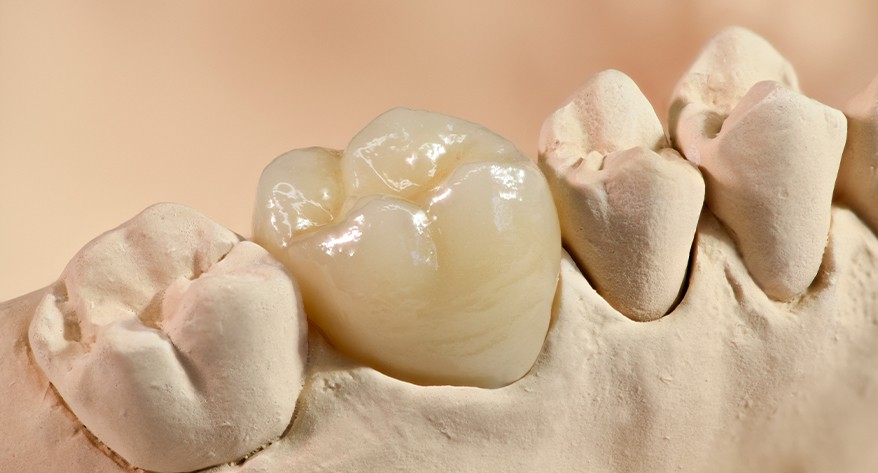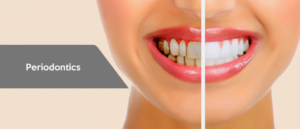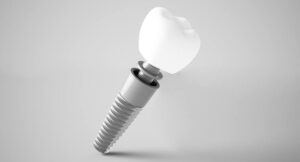Welcome to our blog post on dental crowns! If you’ve ever had a tooth that needed some extra love and protection, chances are you may have heard of dental crowns. These versatile little wonders are like tiny knights in shining armor for your teeth, providing strength, durability, and aesthetic improvement all in one.
But just how durable are dental crowns? Are they built to last or do they require constant maintenance? In this article, we’ll delve into the world of dental crowns and explore their durability. We’ll also discuss the various factors that can affect their longevity and provide tips on how to maintain them for years to come.
So sit back, put on your virtual dentist hat (don’t worry, no drills involved!), and let’s dive into the fascinating world of dental crowns!
Types of Dental Crowns and their Durability
When it comes to dental crowns, there are several types available, each with its own level of durability. Let’s explore the different options and understand how long they can last.
We have metal crowns, which are typically made from alloys like gold or silver. These crowns are known for their exceptional strength and longevity. They can withstand biting forces well and are resistant to chipping or breaking.
Next up are porcelain-fused-to-metal (PFM) crowns. These combine the durability of metal with the aesthetic appeal of porcelain. While PFM crowns provide good durability overall, there is a slight risk of the porcelain layer wearing down over time.
All-ceramic or all-porcelain crowns offer excellent natural-looking results but may not be as durable as their metal counterparts. However, advancements in materials have significantly improved their strength and longevity in recent years.
We have zirconia crowns, which are highly durable due to their strong composition. Zirconia is known for its resistance to fractures and wear, making these crowns an ideal choice for individuals who require maximum durability.
It’s important to note that while certain types of dental crowns may be more durable than others on average, individual factors such as oral hygiene habits and bite force can also affect the lifespan of a crown.
Discussing your specific needs with your dentist will help determine the most suitable type of crown for you based on both aesthetics and durability requirements.
Factors Affecting the Durability of Dental Crowns
When it comes to the durability of dental crowns, several factors come into play. These factors can determine how long your crown will last and how well it withstands daily wear and tear.
One crucial factor is the material used for your dental crown. Different materials have varying levels of strength and resilience. Porcelain-fused-to-metal (PFM) crowns are known for their durability, as they combine the strength of metal with a natural-looking porcelain exterior.
Another factor that affects longevity is proper oral hygiene habits. Regular brushing, flossing, and rinsing with an antibacterial mouthwash help maintain the health of both your natural teeth and your dental crown. Neglecting these habits can lead to plaque buildup or gum disease, which can compromise the integrity of your crown over time.
The position of your dental crown also plays a role in its durability. If you have a crown on a tooth that bears significant chewing forces, such as a molar, it may experience more wear and tear compared to crowns on less involved teeth.
Moreover, grinding or clenching your teeth (bruxism) puts excessive pressure on both natural teeth and dental restorations like crowns. This habit can cause premature wearing down or even fracture the crown itself.
Regular visits to your dentist are essential for assessing the condition of your dental crowns. Routine check-ups allow for early detection of any issues so they can be addressed promptly before they worsen.
By considering these factors and taking appropriate measures to protect your dental crowns, you can significantly enhance their durability and prolong their lifespan!
Maintaining the Durability of Dental Crowns
Proper maintenance is crucial for ensuring the longevity and durability of dental crowns. By following a few simple guidelines, you can keep your crowns in excellent condition for years to come.
First and foremost, it’s important to practice good oral hygiene. Brushing your teeth twice a day and flossing daily will help prevent plaque buildup and minimize the risk of gum disease, which can weaken the supporting structures around your dental crown.
Additionally, avoid using your teeth as tools or biting down on hard objects such as ice or pen caps. These habits can put excessive pressure on the crown, causing it to crack or break.
Regular dental check-ups are also essential for maintaining the durability of dental crowns. Your dentist will examine your crowns during these visits and address any issues before they become major problems.
If you participate in sports or other physical activities, consider wearing a mouthguard to protect your dental crown from potential damage caused by impact or trauma.
Be mindful of what you eat. Avoid chewing sticky foods like caramel or taffy that could dislodge or damage your crown. Similarly, limit consumption of acidic drinks like soda and citrus juices that can erode tooth enamel over time.
By incorporating these practices into your daily routine, you’ll maximize the lifespan of your dental crowns and enjoy their benefits for many years to come. Regular care not only ensures durability but also promotes overall oral health!
Common Issues with Dental Crowns and How to Avoid Them
Dental crowns are an excellent solution for restoring damaged or decayed teeth. They protect your tooth, enhance its appearance, and provide durability. However, like any dental restoration, there can be some common issues that may arise with dental crowns. Here are a few of them and how you can avoid them:
1. Tooth Sensitivity: Some patients may experience increased sensitivity after getting a dental crown. This is usually temporary but can be uncomfortable. To minimize sensitivity, use a desensitizing toothpaste recommended by your dentist.
2. Crown Dislodgement: Although rare, it is possible for a crown to become loose or dislodged from the tooth. To prevent this issue, avoid chewing on hard objects like ice or opening packages with your teeth.
3. Gum Irritation: Poor fitting of the crown can lead to gum irritation and inflammation around the affected tooth. Regular professional cleanings and maintaining good oral hygiene practices help prevent gum problems.
4. Decay at the Margins: If proper oral hygiene isn’t maintained around the edges (margins) of the crown, decay can occur in this area over time. Regular brushing twice daily along with flossing will help maintain good oral health.
5. Chipping or Fracturing: Although dental crowns are known for their durability, they may still chip or fracture if subjected to excessive force or trauma such as grinding/clenching teeth (bruxism). Wearing a nightguard while sleeping helps protect both natural teeth and restorations from damage caused by bruxism.
By following these preventive measures and seeking regular check-ups from your dentist, you can enjoy long-lasting results from your dental crowns without encountering any major issues.
Alternatives to Traditional Dental Crowns
When it comes to dental crowns, they have long been the go-to solution for restoring damaged or decayed teeth. However, advancements in dentistry have led to the development of alternative treatments that offer similar benefits. These alternatives provide patients with more options and flexibility when it comes to addressing their dental needs.
One popular alternative is porcelain veneers. Veneers are thin shells made from high-quality ceramic material that are bonded to the front surface of the teeth. They can be used to improve the appearance of chipped, stained, or misaligned teeth. While veneers may not offer the same level of durability as traditional crowns, they can still provide a long-lasting solution for cosmetic issues.
Another option worth considering is dental bonding. This procedure involves applying a tooth-colored resin material directly onto the affected tooth and then shaping and polishing it to match your natural teeth. Dental bonding is often used for minor repairs such as fixing small chips or gaps between teeth.
For individuals seeking a more conservative approach, dental inlays or onlays may be suitable alternatives. Inlays and onlays are custom-made restorations designed to fit into or onto an existing tooth structure after removing any decayed portions. They can strengthen weakened teeth while preserving more natural tooth structure compared to traditional crowns.
There’s also the option of using composite fillings instead of crowns for smaller cavities or areas of decay. Composite fillings are made from a mixture of plastic and glass materials and can be color-matched to blend seamlessly with your natural teeth.
It’s important to note that these alternatives may not be suitable for every case, so consulting with your dentist is crucial before deciding on any treatment option.
Conclusion: Importance of Regular Dental Check-Ups for Long-Lasting Dental Work
Regular dental check-ups are vital for maintaining the longevity of dental work, including dental crowns. These routine visits to your dentist play a crucial role in ensuring that your oral health remains optimal and any potential issues with your crowns are addressed promptly.
During these check-ups, dentists can assess the condition of your dental crowns, checking for signs of wear or damage. They can also identify other oral health concerns that may impact the durability of your crowns, such as gum disease or tooth decay. By detecting and addressing these issues early on, you can prevent further damage to your crowns and potentially avoid more extensive treatments down the line.
In addition to monitoring the condition of your dental crowns, regular check-ups allow dentists to perform professional cleanings. This ensures that plaque and tartar buildup is removed from around the crown area, reducing the risk of complications like gum inflammation or infection.
Furthermore, during these appointments, dentists can provide valuable guidance on how best to care for your dental crowns at home. They will educate you on proper brushing techniques and recommend using specific tools or products tailored to maintain their durability. Following their advice diligently will significantly contribute to preserving the lifespan of your dental work.
Regular dental check-ups serve as an integral part of long-lasting and durable dental crown maintenance. By scheduling biannual visits with your dentist and following their recommendations for at-home care, you can ensure that both your natural teeth and any restorative work remain healthy and functional for years to come.
Remember – prevention is always better than cure when it comes to maintaining a beautiful smile!












